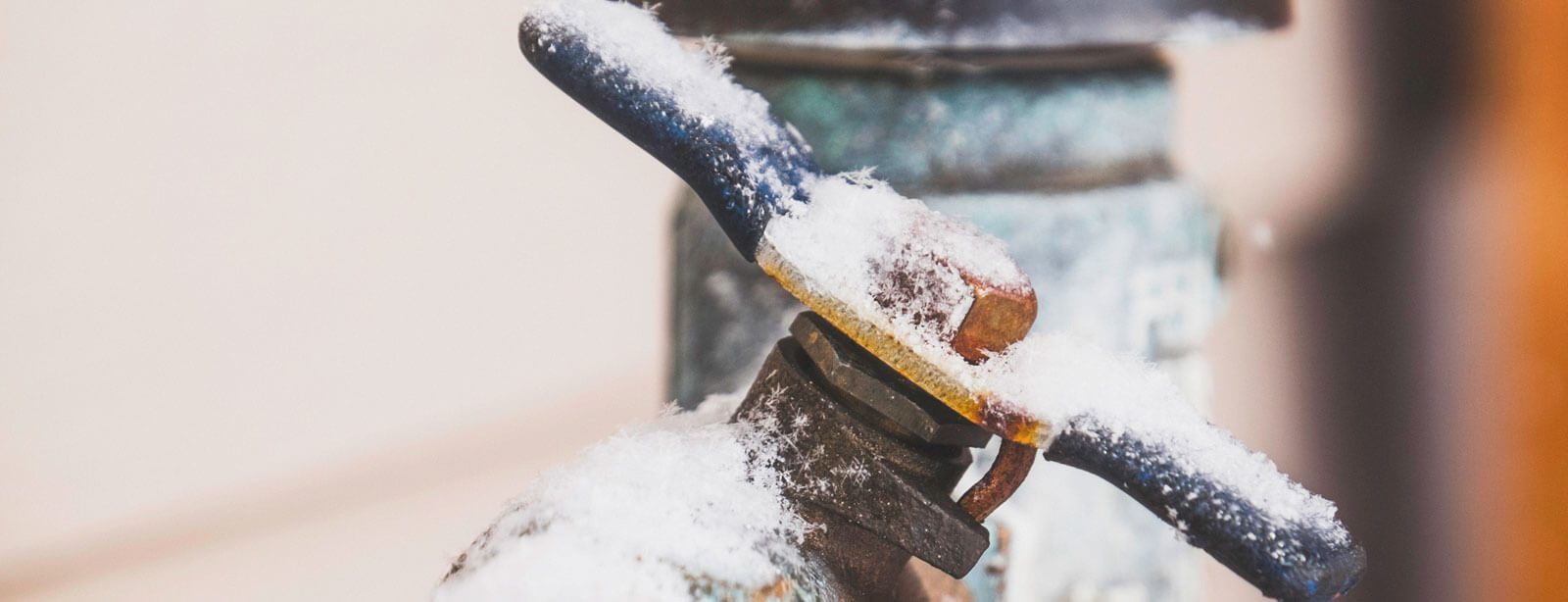Tips to Defend Your Pipes from Cold Weather: Specialist Advice
Tips to Defend Your Pipes from Cold Weather: Specialist Advice
Blog Article
The article down below in relation to How to Prevent Your Pipes From Freezing is extremely attention-grabbing. Have a go and make your own assumptions.

Winter can ruin your plumbing, particularly by freezing pipes. Here's how to stop it from taking place and what to do if it does.
Introduction
As temperature levels decrease, the risk of icy pipes boosts, potentially leading to expensive fixings and water damages. Recognizing just how to prevent frozen pipes is important for property owners in chilly climates.
Prevention Tips
Shielding prone pipelines
Wrap pipelines in insulation sleeves or make use of warmth tape to protect them from freezing temperature levels. Concentrate on pipes in unheated or external areas of the home.
Heating methods
Keep indoor rooms appropriately warmed, especially areas with pipes. Open cupboard doors to permit warm air to circulate around pipes under sinks.
Just how to identify frozen pipelines
Try to find reduced water flow from taps, uncommon smells or noises from pipes, and noticeable frost on subjected pipelines.
Long-Term Solutions
Architectural changes
Consider rerouting pipelines away from exterior wall surfaces or unheated locations. Include additional insulation to attic rooms, basements, and crawl spaces.
Updating insulation
Invest in premium insulation for pipelines, attic rooms, and wall surfaces. Correct insulation aids maintain consistent temperatures and decreases the danger of icy pipelines.
Safeguarding Outside Plumbing
Garden hoses and outdoor faucets
Separate and drain pipes yard hose pipes prior to winter. Mount frost-proof faucets or cover outdoor faucets with insulated caps.
Recognizing Icy Pipes
What triggers pipelines to ice up?
Pipelines ice up when exposed to temperature levels below 32 ° F (0 ° C) for extended periods. As water inside the pipelines ices up, it expands, putting pressure on the pipeline wall surfaces and possibly creating them to break.
Threats and damages
Icy pipelines can result in water supply interruptions, property damages, and costly repair services. Ruptured pipes can flood homes and create considerable architectural damage.
Indications of Frozen Water Lines
Identifying icy pipelines early can avoid them from rupturing.
What to Do If Your Pipes Freeze
Immediate activities to take
If you believe icy pipelines, keep faucets available to soothe stress as the ice melts. Use a hairdryer or towels soaked in hot water to thaw pipes slowly.
Verdict
Preventing icy pipelines calls for positive actions and fast actions. By understanding the causes, signs, and safety nets, house owners can shield their plumbing during cold weather.
Helpful Tips to Prevent Frozen Pipes this Winter
UNDERSTANDING THE BASICS: WHY PIPES FREEZE AND WHY IT’S A PROBLEM
Water freezing inside pipes is common during the winter months, but understanding why pipes freeze, and the potential problems it can cause is crucial in preventing such incidents. This section will delve into the basics of why pipes freeze and the associated problems that may arise.
THE SCIENCE BEHIND FROZEN PIPES
When water reaches freezing temperatures, it undergoes a physical transformation and solidifies into ice. This expansion of water as it freezes is the primary reason pipes can burst. As the water inside the pipe freezes, it expands, creating immense pressure on the walls. If the pressure becomes too great, the pipe can crack or rupture, leading to leaks and water damage.
FACTORS THAT CONTRIBUTE TO PIPE FREEZING
Low Temperatures: Extremely cold weather, especially below freezing, increases the risk of pipes freezing. Uninsulated or Poorly Insulated Pipes: Pipes located in unheated areas, such as basements, crawl spaces, or attics, are more prone to freezing. Insufficient insulation or lack of insulation altogether exacerbates the problem. Exterior Wall Exposure: Pipes running along exterior walls are susceptible to freezing as they encounter colder temperatures outside. Lack of Heating or Temperature Regulation: Inadequate heating or inconsistent temperature control in your home can contribute to frozen pipes. PROBLEMS CAUSED BY FROZEN PIPES
- Pipe Bursting: As mentioned earlier, the expansion of water as it freezes can cause pipes to burst, resulting in significant water damage.
- Water Damage: When pipes burst, it can lead to flooding and water damage to your property, including walls, ceilings, flooring, and personal belongings.
- Structural Damage: Prolonged exposure to water from burst pipes can compromise the structural integrity of your home, leading to costly repairs.
- Mold and Mildew Growth: Excess moisture from water damage can create a favorable environment for mold and mildew growth, posing health risks to occupants.
- Disrupted Water Supply: Frozen pipes can also result in a complete or partial loss of water supply until the issue is resolved.
WHY CERTAIN PIPES ARE MORE PRONE TO FREEZING
- Location: Pipes located in unheated or poorly insulated areas, such as basements, crawl spaces, attics, or exterior walls, are at higher risk of freezing.
- Exterior Pipes: Outdoor pipes, such as those used for irrigation or exposed plumbing, are particularly vulnerable to freezing as they are directly exposed to the elements.
- Supply Lines: Pipes that carry water from the main water supply into your home, including the main water line, are critical to protect as freezing in these lines can affect your entire plumbing system.
- Underground Pipes: Pipes buried underground, such as those connected to sprinkler systems or outdoor faucets, can be susceptible to freezing if not properly insulated.
https://busybusy.com/blog/helpful-tips-to-prevent-frozen-pipes-this-winter/

As a keen reader on How to Prevent Your Pipes From Freezing, I assumed sharing that blog post was important. Enjoyed our piece? Please share it. Help somebody else find it. Thanks a lot for going through it.
Request Your Service Report this page